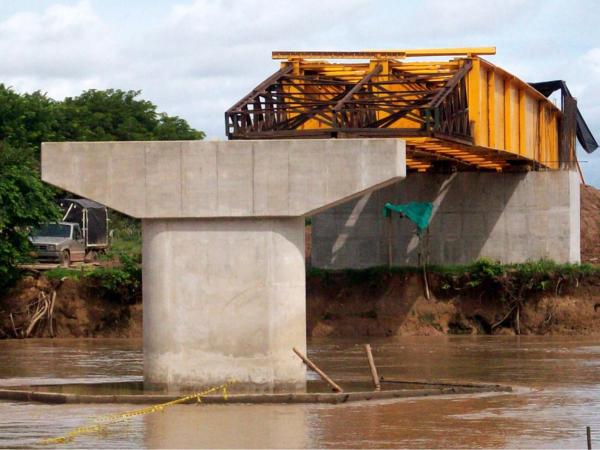When it comes to distributing the wealth generated in Colombia and ensuring that it reaches all regions, royalties are undoubtedly a fundamental tool, which are nothing more than a mechanism that the State has to use efficiently. income derived from the exploitation of the country’s non-renewable natural resources.
Currently in the country this is regulated by the General Royalties System (SGR), Although it has proven to be functional, recent warnings from the Attorney General’s Office bring to the table serious flaws regarding its purpose and how much it is managing to generate social growth and close poverty gaps.
For reading: How to prevent the recovery of the Colombian economy from being a ‘one-hit wonder’?
These warnings were made by Attorney General Margarita Cabello during the forum on this topic held by the Comptroller’s Office, making it clear that there are several problems that are not allowing royalties to fulfill their ultimate purpose, which for her is to generate social well-being throughout the national territory.
Training and monitoring
One of the first challenges that royalties currently face, according to the Attorney General’s Office, is the lack of training, a point in which they say there is a lack of adequate training so that the territories can present royalty projects focused on renewable energy, reforestation, ecotourism, rural electrification with solar energy and watershed protection.
Royalties.
THE TIME file
“The territories need to be trained, the region needs to be educated in how to structure and formulate projects that promote the transition towards a scheme of green economies and sustainable economies. On the other hand, it is important to have strong and efficient control mechanisms that carry out timely monitoring of the resources of the general royalty system,” he explained.
He also said that time has made it clear that one cannot take one’s eyes off how These resources, which are vital for the country, are used, and for this reason it is necessary to strengthen surveillance, not only from this entity, but from all the corresponding authorities in the municipalities and departments, which must work in a coordinated manner and in constant communication with the control entities.
“What we do as watchdogs, alongside the Comptroller’s Office and the National Planning Department, is nothing other than achieving an improvement in the quality of life and well-being of the population through the use of these resources. The preventive surveillance of the Attorney General’s Office, in what we have called the Safeguarded Royalties Strategy, has allowed us to protect resources worth approximately many billions of pesos in our country,” he said.
In other news: Prepare your wallet: tolls will rise again this Thursday by 4.64%
Fight against corruption
Understanding that fighting corruption is a priority when talking about royaltiesThe Comptroller General of the Republic also joined this conversation and with its contributions it was possible to confirm that these two organizations have carried out 169 proceedings against national and regional authorities, companies and contractors for alleged irregularities in the contracting of these resources during the last two years.

Royalties
iStock
In the case of the Comptroller’s Office, only in the first half of 2024 it carried out 35 Special Oversight Actions and Permanent Monitoring of 240 projects financed with royalty resources, covering 139 territorial entities.
“The inconsistencies that predominate in the majority of these projects reviewed by the CGR are: Deficiencies in the structuring and planning of the projects, Insufficient characterization of the territory where they will be executed and Constant modifications in the list of beneficiaries. initially submitted by the formulating entities to the approval bodies,” explained the CGR.
These audits resulted in 199 fiscal findings, totaling $602.774 billion, including 35 PEACE projects valued at $148.696 billion. The Caribbean Region was notable for its 78 fiscal findings, totaling $280.671 billion.
Read here: General Budget of the Nation for 2025: details of the project
Meanwhile, as far as the Attorney General’s Office is concerned, it was reported that from 2022 to date, The company has initiated 31 inquiries and 102 investigations to date, involving 301 people. In addition, 14 charges have been issued. These disciplinary actions focused on safeguarding royalty resources and ensuring their correct use, seeking to improve the quality of life of the beneficiary population.
Much to do
The two regulatory agencies agreed that projects aimed at improving drinking water and basic sanitation, building solar photovoltaic systems and strengthening production systems are the ones that are showing the most anomalies when it comes to reviewing them.

Municipalities
Properati
“In addition to the lack of transparency and other reasons that are “This is why royalties do not satisfactorily fulfil their ultimate purpose, which is social welfare. Corruption, lack of transparency, limited administrative capacity in the regions where royalties should be better managed. We have almost always found deficiencies in project planning. This must also be said,” said Attorney General Margarita Cabello.
Finally, with regard to the Comptroller’s Office, this oversight and control authority concluded by saying that in the first half of 2024, it has charged 43 processes with Fiscal Responsibility at the central level for an amount greater than $330 billion pesos, which have precautionary measures decreed and implemented. In addition, it has issued 28 rulings with fiscal responsibility, for an amount greater than $134 billion.
Thus, although for these two authorities the scheme with which royalties operate in Colombia is good, we must not lower our guard against their surveillance, taking into account that this is nothing more than money that is needed to that the most vulnerable populations can improve themselves and contribute to the growth of an entire Nation.

















